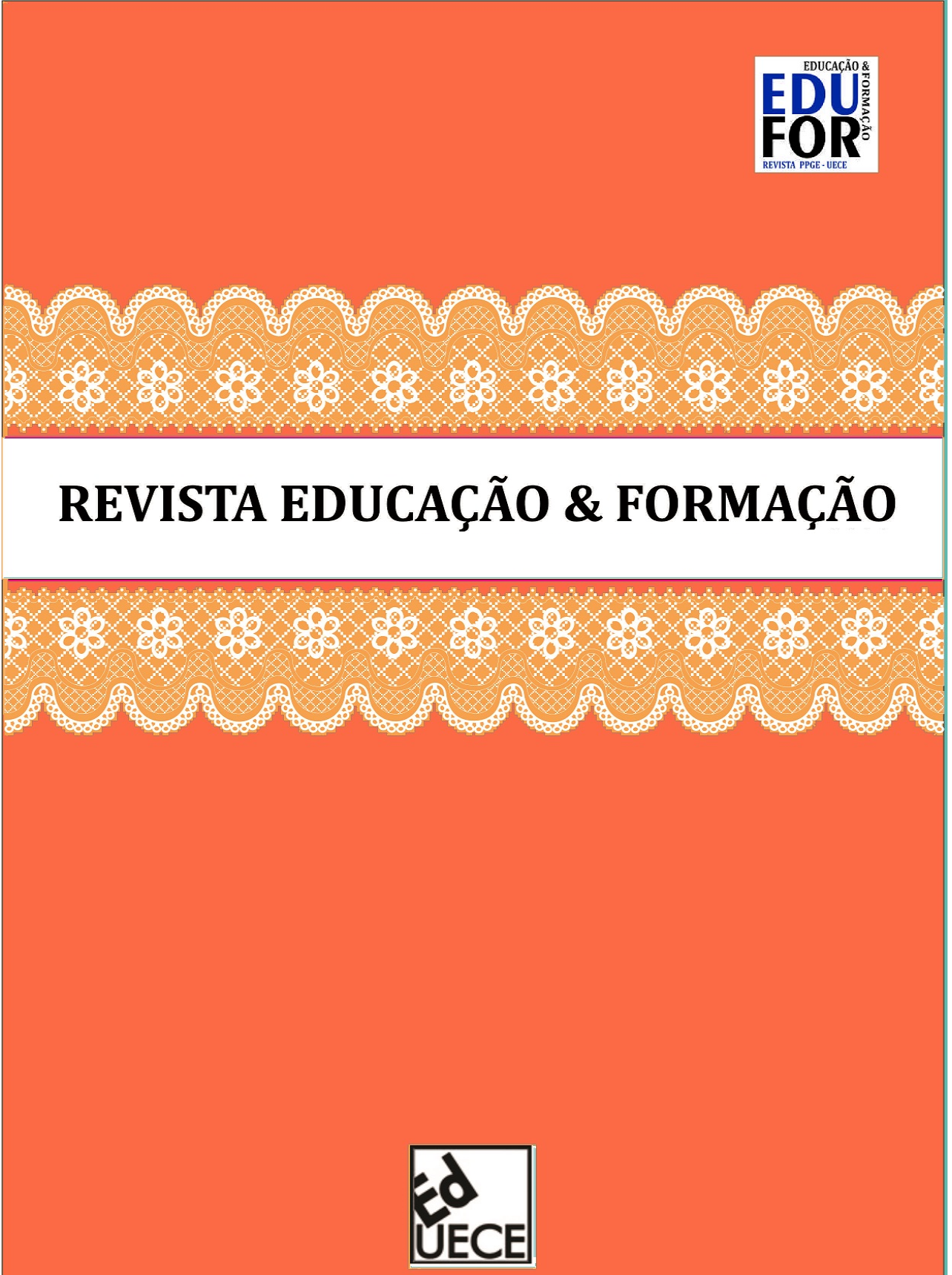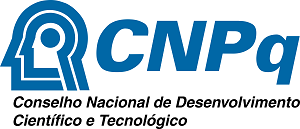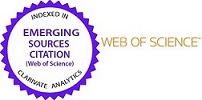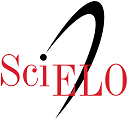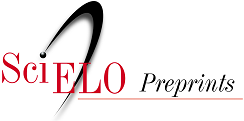Desenvolvimento do potencial criativo de futuros professores
estratégia para melhorar a qualidade do ensino superior pedagógico
DOI:
https://doi.org/10.25053/redufor.v5i15set/dez.3292Palavras-chave:
Estratégia, Qualidade, Educação, Potencial criativoResumo
O artigo revela a interação da orientação pessoal da formação de futuros professores e a qualidade de sua educação pedagógica, o nível de prontidão para a atividade profissional criativa. O potencial criativo do aluno é considerado como um indicador de orientação pessoal de preparação para a atividade profissional e seu desenvolvimento por meio do processo educacional como estratégia de manutenção da qualidade do ensino pedagógico superior. O potencial criativo dos futuros professores alia-se àestrutura decomponentes motivacionais, operacionais, pessoais e avaliativos, cujo grau de formação depende da qualidade da educação pedagógica e do grau de prontidão para a atividade profissional criativa. A efetividade do modelo estrutural-funcional do sistema de desenvolvimento do potencial criativo de futuros professores em conformidade com o conjunto de condições pedagógicas foi confirmada experimentalmente.
Downloads
Referências
AMABILE, T. M. et al. (Ed.). Сonditions of creativity: the nature of creativity. Cambridge: Cambridge University, 1988.
ANDREEV, V. I. Dialectics of education and self-education of a creative person. Kazan: Kazan University, 1988.
BARRON, F. Discovering of creative personality: the Behavioral sciences and education. New York: The College Entrance Examination Board, 1963.
BODEN, M. A. Creativity and artificial intelligence. Artificial Intelligence, n. 103, p. 347-356, 1998.
BODNAR, S.; MIRKOVICH, I.; KOVAL, V. Human capital development in Ukrainian education system by means of language integrated teaching. Dilemas Contemporáneos: Educación, Política y Valores, Toluca, v. 7, p. 14, 2019.
BUKANOV, H. et al. Social marketing in public administration of social service institutions. Revista Gênero & Direito, João Pessoa, n. 8, p. 457-468, 2019.
DAVYDOV, V. V. Problems of developmental education: the experience of theoretical and experimental research. Moscow: Pedagogy, 1986.
DISTERWEG, A. Guide to the education of German teachers: reader on the history of foreign pedagogy. Moscow: Education, 1971.
GUZIY, N. V. Fundamentals of professional pedagogy. K.: NPU, 2004.
HENNESSY, M. Algebraic theory of processes. Cambridge: MIT, 1988.
ILYIN, E. P. Psychology of creativity, creativity, giftedness. San Pietroburgo: Peter, 2009.
KAMENSKY, J. A. Selected pedagogical essays. Moscow: Pedagogika,1982.
KHUTORSKOY, A. V. Heuristic training: theory, methodology, practice. Moscow: International Pedagogical Academy, 1998.
KOLOSOVA, N. M. Structural and functional model of preparation of future educators for pedagogical support of preschool children. Pedagogical Discourse, v. 10, p. 245-251, 2011.
KORETS, M. S. Development of creative potential of future teachers of labor training in the system of technical training. K.: NPU, 1998.
KOVAL, V.; POLYEZHAYEV, Y.; BEZKHLIBNA, A. Communicative competences in enhancing of regional competitiveness in the labour market. Baltic Journal of Economic Studies, v. 4, n. 5, p. 105-113, 2018.
KUZMINA, N. V. Professionalism of the personality of the teacher and Master of Industrial Training. Moscow: Higher School, 1990.
LERNER, I. Y. Modern didactics: theory - practice. Moscow: Pedagogy, 1994.
MAKARENKO, A. S. Pedagogical works. Moscow: Pedagogy, 1984.
MAKHMUTOV, M. I. Organization of problematic education at school. Moscow: Education, 1977.
MATUSHINSKY, G. U.; FROLOV, A. G. Designing models of preparation for the professional activities of higher education teachers. Educational Technology and Community, v. 3, n. 4, p. 183-192, 2000.
MATYUSHKIN, A. M. The concept of creative giftedness. Psychology Issues, v. 6, p. 29-33, 1989.
MUSHYNSKA, N. Means of future economists’ professional self-development in the educational process of foreign language studying. Economics, Ecology, Socium, v. 2, n. 3, p. 45-56, 2018.
NOVIKOV, D. A. Statistical methods in pedagogical research (typical cases). Moscow: MZ, 2004.
PESTALOZZI, I. G. Selected pedagogical essays. Moscow: Pedagogika, 1981.
PONOMAREV, Y. A. Creativity psychology and pedagogy. Moscow: Pedagogy, 1976.
ROUSSEAU, J. J. Pedagogical works in 2 vol. Moscow: Pedagogy, 1981
STERNBERG, R. J. Mental self-government: a theory of intellectual styles and their development. Human Development, v. 31, n. 4, p. 197-224, 1988.
SUKHOMLINSKY, V. A. Conversation with the young headmaster. Moscow: Enlightenment, 1982.
SYSOEVA, S. O. Creative development of personality in the process of continuing professional education. Continuing professional education: theory and practice, 2001.
TIKHOMIROV, O. K. Psychological research of creative activity. Moscow: Science, 1975.
USHINSKY, K. D. Pedagogical works. Moscow: Pedagogy, 1988.
ZAGVYAZINSKY, V. I. Modeling in the structure of pedagogical design. Alma Mater: Bulletin of Higher Education, 1987.
Downloads
Publicado
Como Citar
Edição
Seção
Licença
Copyright (c) 2020 Lydiya Valentinovna Kondrashova, Mykola Mykolayovych Kondrashov, Natalia Oleksandrivna Chuvasova, Nadiya Andriyivna Kalinichenko, Hanna Volodymyrivna Deforzh

Este trabalho está licenciado sob uma licença Creative Commons Attribution 4.0 International License.
Os autores possuem direitos autorais dos seus textos:
A revista Educação & Formação permite ao autor os direitos de publicação, no entanto, recomenda um intervalo de dois anos para o caso de republicação.
Os nomes e endereços informados nesta revista serão usados exclusivamente para os serviços prestados por esta publicação, não sendo disponibilizados para outras finalidades ou a terceiros.

